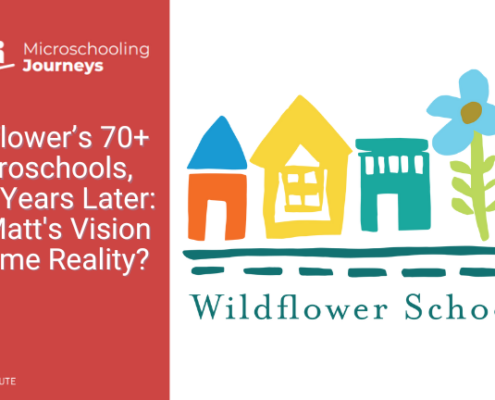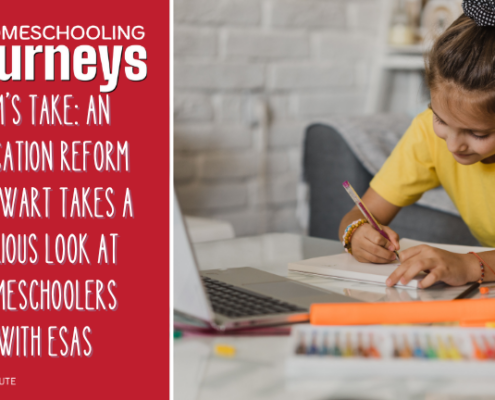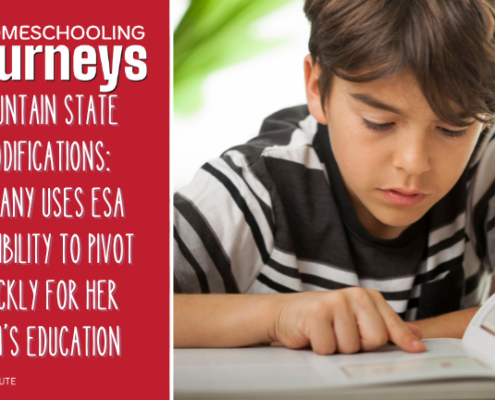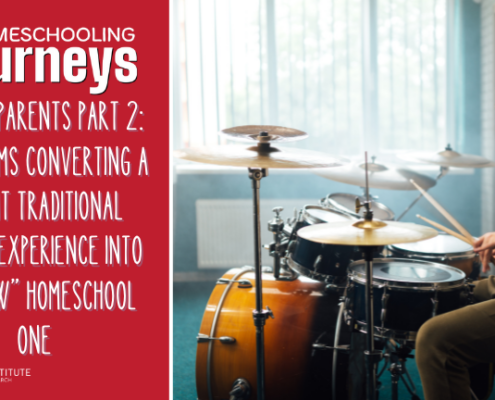Tag Archive for: ESAs

MBTAAnalysis: A look inside the MBTA
0 Comments
/
The MBTA shuttles over a million passengers a day around Greater…
 https://pioneerinstitute.org/wp-content/uploads/CloseupClock-1.jpg
739
1244
Mary Connaughton
https://pioneerinstitute.org/wp-content/uploads/logo_440x96.png
Mary Connaughton2017-02-20 12:34:192017-02-21 09:47:58The Clock is Ticking…….
https://pioneerinstitute.org/wp-content/uploads/CloseupClock-1.jpg
739
1244
Mary Connaughton
https://pioneerinstitute.org/wp-content/uploads/logo_440x96.png
Mary Connaughton2017-02-20 12:34:192017-02-21 09:47:58The Clock is Ticking…….
EdChoice’s Robert Enlow on School Choice
In this episode of The Learning Curve, co-hosts U-Arkansas Prof. Albert Cheng and Alisha Searcy interview Robert Enlow, president and CEO of EdChoice. Mr. Enlow discusses his decades of leadership in school choice advocacy, from his early work with the Milton and Rose Friedman Foundation to spearheading policy reforms nationwide.

Wildflower’s 70+ Microschools, Eight Years Later: Did Matt’s Vision Become Reality?
This week on Microschool Journeys, Curious Mike sat down with Matt Kramer, founder and CEO of Wildflower Schools, a national network of teacher-led Montessori microschools. How does he take a teacher who dreams “Maybe I should have my own little school”- and make that a reality? And how does he take a noble vision - socio-economic diversity, loosely a third from each wealth class - and make the budget work, using ESAs, vouchers, charters, and other subsidies? Tune in for this fascinating conversation!

Notre Dame Law Assoc. Dean Nicole Stelle Garnett on Catholic Schools & School Choice
In this episode of The Learning Curve, co-hosts U-Arkansas Prof. Albert Cheng and Alisha Searcy interview Nicole Stelle Garnett, Associate Dean and John P. Murphy Foundation Professor of Law at Notre Dame Law School, and a national expert in education law and school choice. Dean Garnett discusses the vital role Catholic education plays in fostering faith, community, and the pursuit of “the true, the good, and the beautiful.” She explores the challenges posed by the decline of Catholic schools in urban areas, as outlined in her book Lost Classroom, Lost Community: Catholic Schools' Importance in Urban America, and highlights policy solutions such as expanding educational choice options to support Catholic school families.

Tim’s Take: An Education Reform Stalwart Takes a Curious Look at Homeschoolers With ESAs
This week on Homeschooling Journeys, Curious Mike interviews Tim Daly, CEO of Education Navigator and former CEO of TNTP. Mike is hunting for some Big Picture perspective. Intrigued by what he’s seen from ESAs, he chats with old friend Tim. The “old” Education Reform Alliance has died out somewhat; what can this new ESA sector learn?

U-OK’s Dan Hamlin on Emerging School Models & Learning Loss
This week on The Learning Curve, co-hosts Alisha Searcy of DFER and U-Arkansas Prof. Albert Cheng interview Dan Hamlin, an Associate Professor in the Department of Educational Leadership and Policy Studies at the University of Oklahoma. Prof. Hamlin offers his insights on the state of K-12 education policy and reform. He shares how his academic experiences and research shaped his philosophy on education and informed his work with Harvard PEPG’s “Emerging School Models” conference.

Mountain State Modifications: Tiffany Uses ESA Flexibility to Pivot Quickly For Her Son’s Education
This week on Homeschooling Journeys, we meet Tiffany Hoben from West Virginia. Curious Mike chatted with her twice: once in June 2024, and again in October 2024. This October episode shows the nature of homeschooling: plans change. That cuts both good and bad. One cool opportunity disappeared; but at roughly the same time, a new need emerged, as well as the perfect educator to solve that problem. Tiffany, like other homeschoolers using Education Savings Accounts (ESAs), has a variety of experiences: she gets to personalize her son's education, but in doing so, experiences friction that comes both from DIY and from the red tape of actually making purchases (software challenges and bureaucratic hoops). Her $4,900 “Hope Scholarship” is used for her son’s biology curriculum, rock climbing, an AI-aided writing class, and above all, a specialized phonics tutor. She is optimistic about the future of ESAs for homeschoolers in West Virginia.

Homeschooling with Hope: Katie Switzer’s ESA Experience
In this episode of Homeschooling Journeys with Curious Mike, Katie Switzer from West Virginia shares her compelling story as a homeschooling mom navigating the state's Hope Scholarship program. She recounts her pivotal role as a plaintiff in the legal battle that saw the scholarship declared unconstitutional by a West Virginia Circuit Court, only to be appealed to the state Supreme Court. Katie also sheds light on the frustrations and red tape surrounding the reimbursement process, a challenge many parents face when trying to access funds through the scholarship. Despite the hurdles, Katie successfully uses her Hope Scholarship for her children’s education, covering basic curriculum, speech therapy, piano lessons, and online classes with a beloved teacher, Miss Ashley. This episode provides an eye-opening look at the struggles and successes within the evolving landscape of school choice and education savings accounts.

Lynch Foundation’s Katie Everett on School Finance Model for Catholic Schools & School Choice
This week on The Learning Curve, co-hosts U-Arkansas Prof. Albert Cheng and Mike Goldstein interview Katie Everett, the Executive Director of the Lynch Foundation. Ms. Everett shares her journey into K-12 education reform and discusses the influential vision of Carolyn and Peter Lynch, and their foundation's role in shaping education policy in Massachusetts and beyond.

Surf, Skate, Learn: Hands-On Science for Homeschoolers
In this episode of Homeschooling Journeys, Curious Mike interviews Uli and Toni, the founders of Surf Skate Science, a unique program that combines beach-based science lessons with surfing and skateboarding activities. The program offers kids hands-on experiences in physics and chemistry, both on land and in the water. They explore how Surf Skate Science highlights the advantages of Education Savings Accounts (ESAs), which allow families to fund specialized, engaging educational experiences. This episode also reflects on how traditional schools often lack the resources, freedom, and partnerships, like those between Uli and Toni, that can make learning truly relevant and memorable for kids.

Vitamin Parents Part 2: Twin Moms Converting a Decent Traditional School Experience Into a “Wow” Homeschool One
This week's episode of Homeschooling Journeys features Andreina, twin sister of Mariana (last week’s interview). Using Education Savings Accounts (ESAs), Andreina funds activities like competitive jujitsu, music lessons at School of Rock, and Surf Skate Science. As a "Vitamin Homeschooler” (Curious Mike’s term), Andreina enhances her children's education through independent learning tasks and family projects. While the kids’ desire for homeschooling serves as the foundation for their motivation, she experiments also with small rewards like a little screen time or chocolate. Andreina also benefits from family support with her twin; Mike observes that formal feedback isn't common in homeschooling, unlike in traditional classrooms.

Colossal Academy’s Shiren Rattigan on Microschools and School Choice
This week on The Learning Curve, guest co-hosts Charlie Chieppo and Kendra Espinoza interview Shiren Rattigan of Colossal Academy, a microschool in Florida. They discuss how Shiren became interested in K-12 education and how and why the COVID-19 pandemic led to her founding a microschool.

WV State Sen. Patricia Puertas Rucker on Universal School Choice
This week on “The Learning Curve," co-hosts Cara Candal and Gerard Robinson talk with Senator Patricia Puertas Rucker, a West Virginia state Senator and Chair of the Education Committee. Thanks to her leadership, West Virginia now has the widest, most universal education savings account program in America.

Modeling an Education Savings Account for Massachusetts
This report finds that Massachusetts provides fewer options for students to be educated outside their assigned school districts than most other states do, and educational savings accounts (ESAs) offer an effective tool for giving students additional opportunities. Author Cara Candal proposes two potential ESA programs for Massachusetts.
